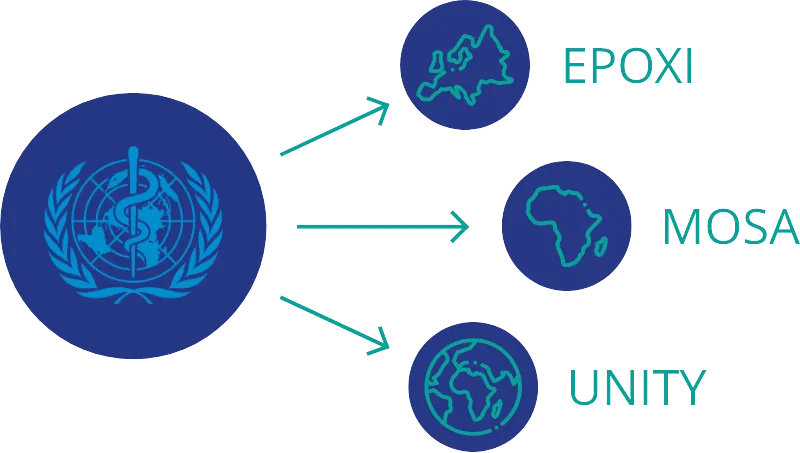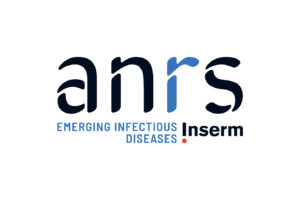METHODOLOGY
MPX-RESPONSE is organized into 4 WP
WP1
COORDINATION
Objectives :
- Ensure the smooth management and coordination of the project
- Monitor the progress of the project and ensure its objectives are met
- Set up a data management plan and a dissemination and exploitation plan
- Develop communication tools and promote the project wherever possible
- Gather and discuss lessons learnt and recommendations to feed into future policies regarding mpox
WP leader
WP4
UNITY AND CLINICAL STUDIES
Objectives :
- Global coordination of the UNITY study and MOSA study
- Articulation of EPOXI, MOSA and UNITY, through a common database and connected governance instances
- Scientific and operational oversight of the studies, including safety and pharmacovigilance
- Carry out two double-blinding randomized clinical trials for the treatment of mpox in relevant non-European regions (Sub-
- Saharan Africa, and Switzerland, Brazil and Argentina).
WP leader
Based on WHO « Core » protocol
In response to the 2022 outbreak of mpox disease, the World Health Organization (WHO) has promoted a structured and coordinated approach to prevent redundant research efforts and expedite the assessment of treatments against mpox disease. A group of experts, convened by the WHO and ANRS MIE, has been tasked with developing a core protocol, designed to promote global collaboration. Trials seeking to support this collaborative exchange are encouraged to adopt standardized inclusion criteria and endpoints. The UNITY, MOSA and EPOXI protocols were developed based on the WHO core protocol. While inclusion criteria are adapted to the local context, all three studies share the same primary endpoint, enabling possibility to pool data and promptly reach more robust conclusions.

An innovative clinical platform model
Through MPX-RESPONSE, three trials operate as independent studies but works in an interconnected manner. The close collaboration is ensured through reciprocal participation in governance instances (Trial Steering Committee and Working Groups). A common Data Safety Monitoring Board (DSMB) promotes recommendations that can feed the three trials, and harmonize choices. This approach becomes particularly valuable in the context of fluctuating rates of mpox cases across different times and regions. By pooling and sharing efforts and data, this collaborative framework enables the generation of more robust and timely conclusions, addressing the dynamic nature of epidemic.
Common features
The teams engaged in the different mpox-related trials can benefit from a set of shared services, including data management support and pharmacovigilance. The establishment of a common database facilitates data sharing, enabling joint analysis of the efficacy and safety of treatments, all while ensuring data ownership. This innovative governance structure and data-sharing paradigm necessitated the statistical teams to develop a robust statistical methodology for conducting joint analyses, while satisfying stringent regulatory requirements. This methodology lies at the juncture between standard statistical methods for randomised clinical trials, and Individual Participant Data Meta Analyses, which involves combining data from various trials after their individual publication.




